A post about Oscar Wilde’s children’s book, in honor of his birthday, which was this past Saturday, October 16th…
From Library Assistant Christopher F. Bostwick
Oscar Wilde is best known for his prominent role in the aesthetic arts and literature movement of the late nineteenth century in England. Wilde’s notoriety may also be credited to his scandalous intimate life and sad demise. With the wealth of research and literature that surrounds his aesthetic lifestyle and its clash with Victorian sensibility, it is easy to overlook Wilde’s contribution to the world of children’s literature. Between 1888 and 1892, Wilde published two volumes of children’s stories while at the same time completing work on his one and only novel, the dark, Faustian masterpiece The Picture of Dorian Gray.
The Happy Prince and Other Tales and The House of Pomegranates can be seen as brilliant works in their own right, and provide as much a glimpse into the author’s internal struggle as his more well-known, adult literature. Set in fantastic and picturesque settings, and cast with magical, often misfit characters, Wilde’s stories confront issues of abandonment, identity, and belonging. Indeed, some speculate as to whether Wilde used the medium of children’s literature to explore some of the very real personal conflicts he struggled with as a father, a husband, and a closeted homosexual.

In The Selfish Giant, a group of children are discover a wonderful green garden and return every day to play and enjoy the many fruit trees. However, one day they are saddened to find the garden inaccessible and walled-in by the Selfish Giant living in the castle overlooking the garden. Without the lively youth of the children, the garden slips into a perpetual winter. Ultimately, the Giant learns the error of his selfishness and when the children find a way to sneak back into the garden, the winter turns back to spring and the Giant rejoices at the return of his young friends. Some believe that Wilde wrote the story to express the guilt he felt for neglecting his wife and children while pursuing his career abroad, in addition to several extramarital affairs. Interestingly enough, several of the stories that would eventually be published in these two collections were adapted from the tales that Wilde would improvise for his children before bed. Here at the Clark Library, we have copies of many editions of The Selfish Giant and Wilde’s other children’s pieces, including these two beautifully illustrated editions published in 1918 and 1940.
- The opening paragraphs of the Selfish Giant
- From the 1918 edition
- From the 1918 edition
- From the 1918 edition
- From the 1940 edition
- From the 1918 edition
- Title page from 1940 edition
- Title page from 1918 edition
- Cover of the 1918 edition



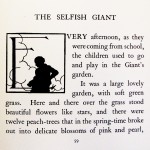
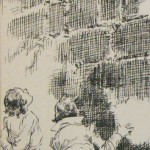
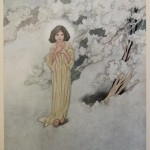
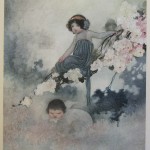
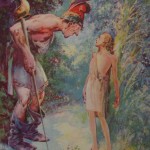
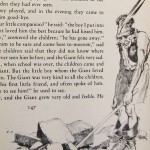

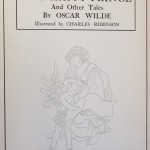
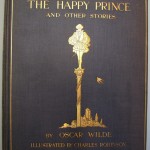
These are wonderful! Thanks for sharing!